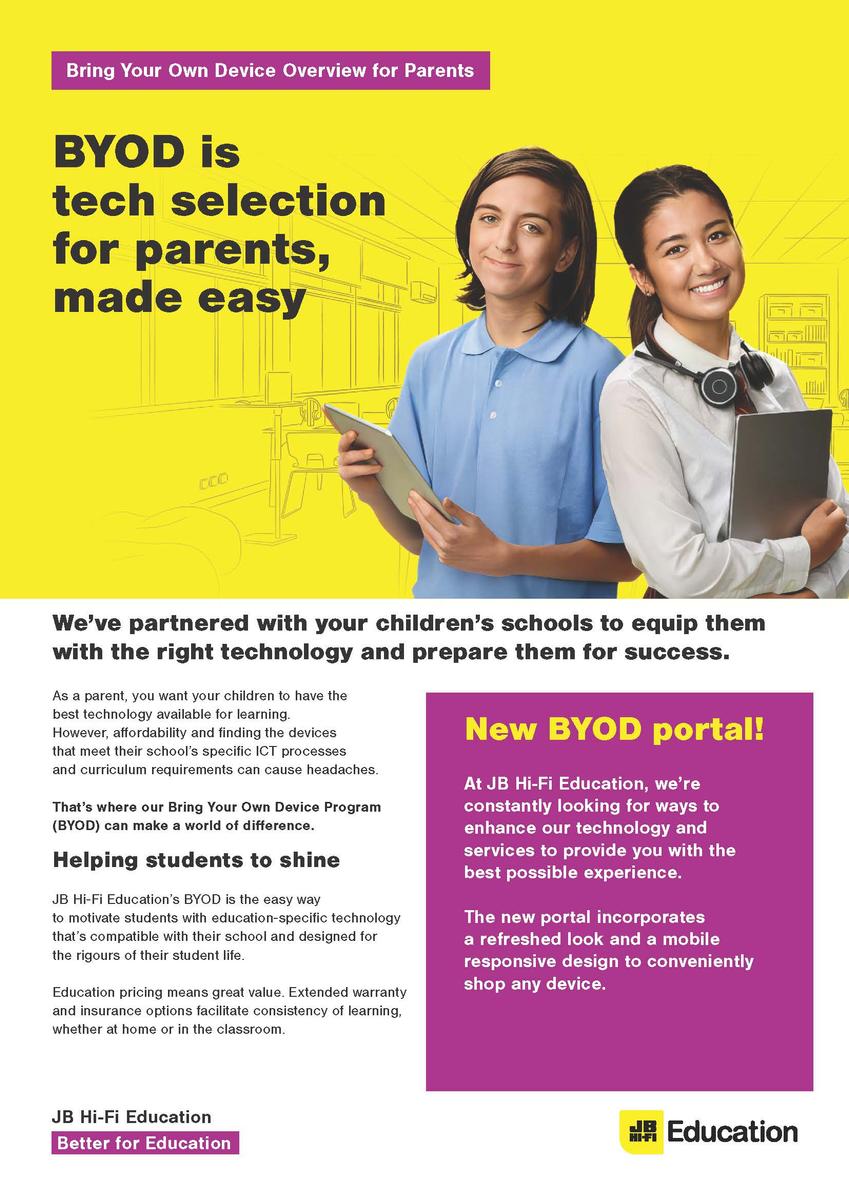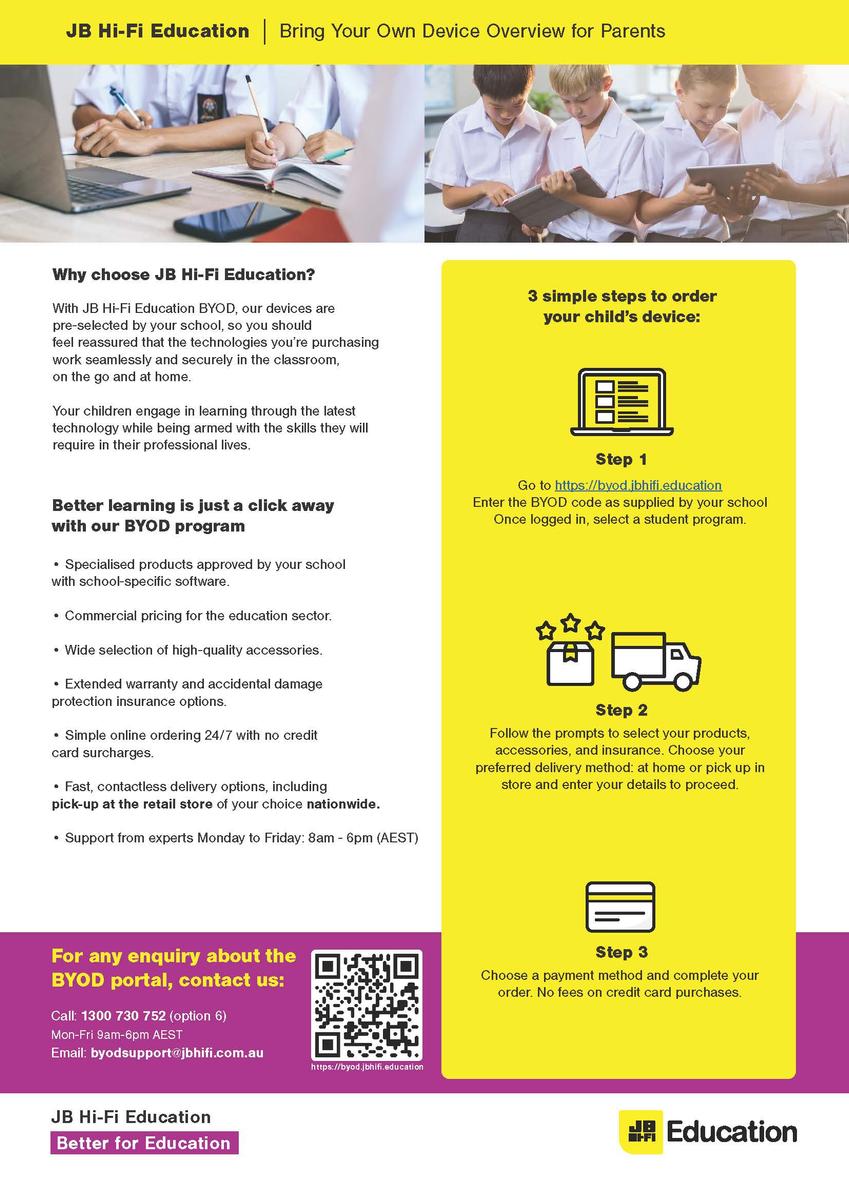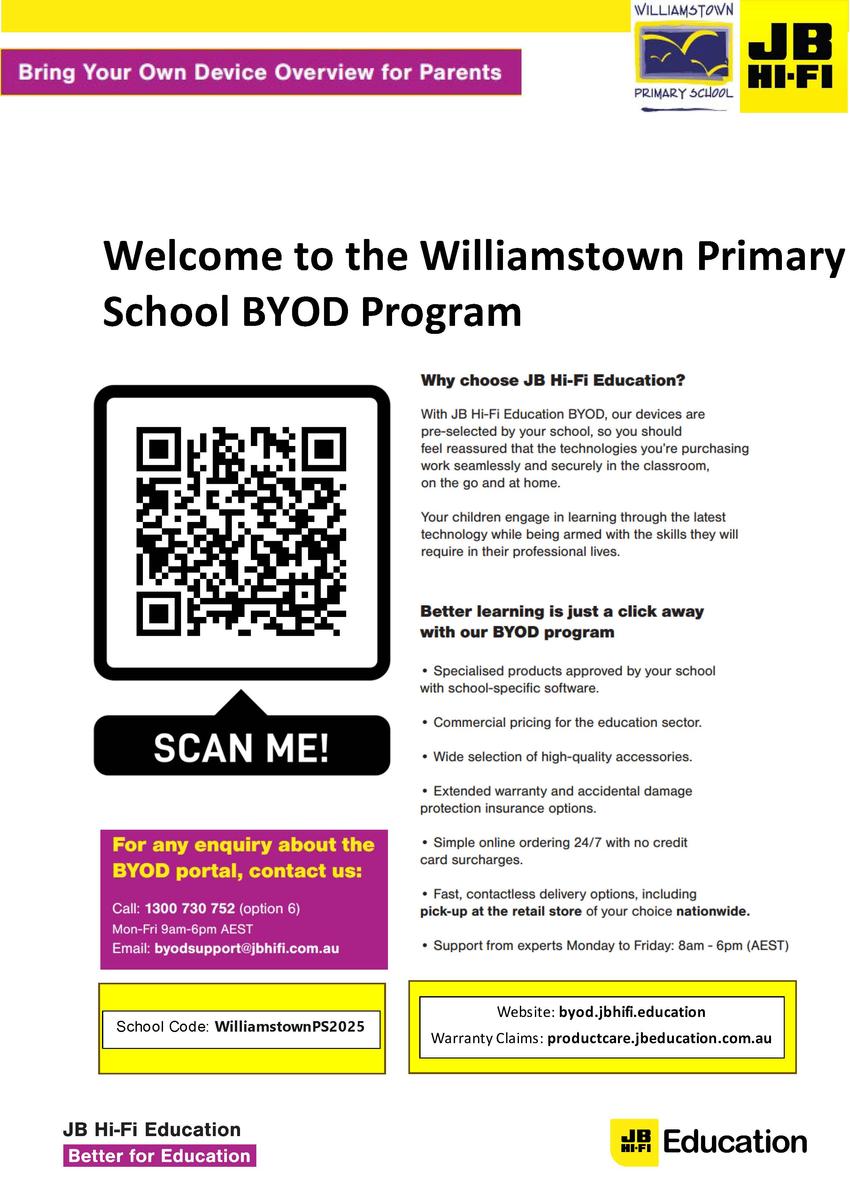Digital Learning
Resources to support families and students to be safe and responsible digital citizens

Digital Learning
Resources to support families and students to be safe and responsible digital citizens
Hello everyone,
Welcome back for Term 3!
This term, we will continue to work with and build student knowledge and understanding of digital technology and the positive and negative impact it can have.
We will run our digital workshops for our Grade 3-6s. The feedback from families has been positive about the messaging students are bringing home.
To support our younger students, families can access a website called Playing IT Safe.


https://playingitsafe.org.au/parents-and-carers/
Playing IT Safe is a free, evidence‑based initiative developed by the Alannah & Madeline Foundation, Australian Federal Police, and the eSafety Commissioner, designed to help families of children aged about 12 months to 7 years talk about and teach online safety in a fun, age‑appropriate way.
What’s in it for families?
Why start early? (https://www.esafety.gov.au/ )
The Playing IT Safe website also contains information for parents and carers about starting online safety conversations with their under-5s, as well as three online games that can be played together to support these family discussions.
Educators and families can use the Playing IT Safe resources as practical opportunities to teach children about eSafety’s four key messages.
Examples include:
Be safe
Educators will find many activities to help children understand digital toys and devices and how being digitally connected is useful, but also how it can have risks. 'Share that Photo!' is a great online game — educators can suggest parents/carers and children play it together, to spark conversations about how photos and information are shared online.
Be kind
Playing IT Safe provides many activities for children to practice taking their kind and caring behaviour from the real world to an online environment, including 'Sharing our digital things' and 'How do I feel when?'. Activities such as 'Taking a photo' can encourage discussions about seeking consent.
Ask for help
The non-digital 'Classroom pop-ups' activity helps young children learn about what to do when pop-ups appear online. Educators can suggest families play the online game 'Who can help?' so children understand who they should go to when something unexpected happens while they are playing on digital technology.
Make good choices
Educators can use the 'Pre-school Technology Plan' to start the discussion about rules for the use of digital technology. This can be extended at home by families playing the 'Family Technology Plan' game and using eSafety’s own Family Tech Agreement.
Williamstown Primary School acknowledges the recent Human Rights Watch report on Edutech in privacy violations and findings.
Williamstown Primary works closely with the DET’s Digital Learning and privacy teams to ensure that all DET guidelines regarding the implementation of digital devices are followed.
Attached is the school’s digital statement outlining the online platforms and their privacy policies that the school uses on a day-to-day basis.
As part of the school’s ongoing student education, the school will further enhance key understandings around user privacy, as well as the tools available on selected devices.
This will be embedded within the current school’s eSafety program that currently sees students undertake numerous digital workshops run by both school leadership, classroom teachers and external providers such as the Alannah and Madeline Foundation’s eSmart organisation.
Parents are advised of a key iPad feature to turn tracking off. This feature will be explicitly demonstrated to students within the school-based workshops.
Go to Settings > Privacy > Tracking.
The list shows the apps that requested permission to track you. You can turn permission on or off for any app on the list.
To stop all apps from asking permission to track you, turn off Allow Apps to Request to Track (at the top of the screen).
Below is a link to the schools Digital Learning page. This page contains key information about the school's implementation of the digital technology curriculum as a tool within a blended learning environment.
The JB HiFi purchase portal is again available for Willy PS families. The schools recommended minimum specification device is the iPad Gen 9, but the portal does also offer a range of iPad models and accessories. Although students have access to bluetooth keyboards we also recommend the Smart Keyboard or a 3rd party keyboard incorporated within the cover. This accessory will add value to the users experience.
Please also note the change in School Code.
Although the portal is set up through JB HI-FI on behalf of the school, we encourage families to explore all purchase options.






Please find attached documents released by DET.
The first document gives a deeper understanding of the DET licences G Suite for Education, how it is set up and how it differs from the public Google platform.
The second document provides families with supporting resources on how to protect individuals privacy online.
The Department of Education information pack for parents is available from the following link: